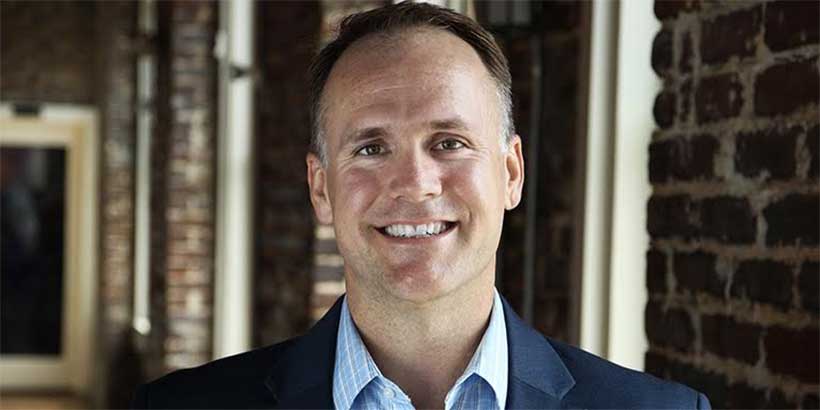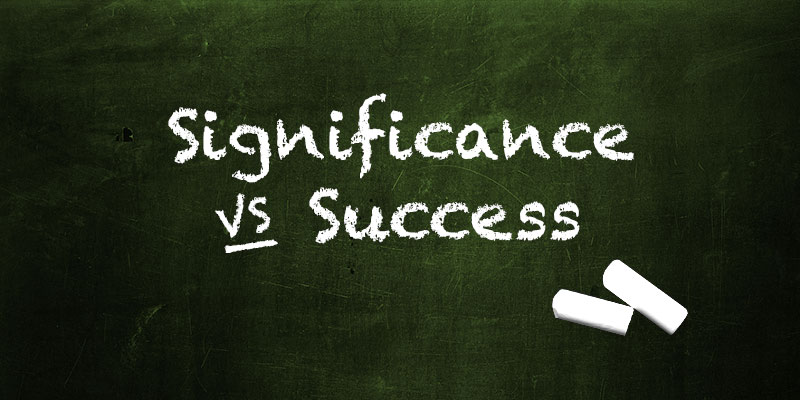Cord Sachs is a Birmingham-based leadership expert and the CEO of FireSeeds, a company that helps companies find and grow great leaders and “the company behind many of Alabama’s fastest growing companies.”
The full conversation with Mr. Sachs can be heard on the Yellowhammer Radio podcast or in the video above, and a lightly edited transcript of his interview with Yellowhammer’s Andrea Tice and Scott Chambers can be read below.
Subscribe to the Yellowhammer Radio Podcast on iTunes. Learn more about Cord Sachs and Fireseeds at www.fireseeds.com
Scott Chambers:
Hey, welcome back to Yellowhammer Radio, super station 101 WYDE. You can tweet the program at yhnradio. Our guest today is none other than our friend Cord Sachs who was leveraging 15 years in leadership development experience. Cord launched a really cool company called FireSeeds to help recruit dynamic leaders and install leader development strategies in the world changing businesses. We’ve been talking about board room to family room. It’s how you can be better at home, how you can be better at work and really change lives, honestly. Cord, welcome into Yellowhammer Radio. How’s it going today, man?
Cord Sachs:
Going great, Scott. How are you and Andrea doing? Is Andrea in today?
Andrea Tice:
I am here and it’s good to hear from you too, Cord.
Cord Sachs:
Very good. Glad to be here.
Scott Chambers:
Well, we’re glad to have you here. Last week we kind of wrapped up talking about the midlife crisis and you ended with a thought. I will remember it was, “Our main goal in life, if it’s … If our main goal in life is to be successful, then we’re really destined for regret.” That’s where we left off. Kind of remind us and the listeners what that was all about, Cord.
Cord Sachs:
That’s right. If we’re just living for success, and that’s what the whole midlife crisis is about, we live for success and we get to the middle of our lives and we realize one or two things. Either we haven’t gotten that success, and therefore we have a crisis and we’re disappointed, or maybe we have gotten that success, but yet there’s still the emptiness and the void in our lives. And it leaves us at a place of crisis. That’s where we left off. That was the difference.
Andrea Tice:
Okay, and Cord, you mentioned the difference, that there’s a difference between significance and success. You were advising us to pursue significance, not success. Remind us again of the difference and why we need to do that.
Cord Sachs:
That’s right. We talked about how if we can live for significance instead of our main goal only being about success, then we have a shot at fulfilling that void. That early fulfillment that comes when we just shoot for success and either we don’t get it and we feel the void, or the unfulfillment, or we do get it and realize it didn’t fill us up. There’s a big difference between significance, which is the things in life that matter, which is ultimately people. It’s having a positive impact on people. Is that our goal? Is that what we’re living for? Or are we just living for success? Those are the things in life that money can buy. The main difference between significance and success is people or things and stuff.
Scott Chambers:
Things and stuff, I like that. Okay Cord, if we’re living for significance, then we have a shot at filling the void, or emptiness that really success couldn’t fill. Then, what will living for significance actually fill into that void? What should be the expectation that we’re actually going to get out of it?
Cord Sachs:
That’s an awesome question.
Scott Chambers:
That’s a loaded question, I’m sorry.
Cord Sachs:
It’s a loaded, loaded question and I love asking that question of a lot of different individuals over time. I’ll ask, “What do you really want? What was the definition of your success and did it give you what you wanted?” They always tell me no. “Well, what did you really want, then?” I will do a little exercise with you, Scott. And I know you’re not prepared for this. You’re just going to walk me … You’re actually going to walk me through the exercise.
Scott Chambers:
Uh oh. Uh oh.
Cord Sachs:
All you have to do is ask me … The first question is, “What is your definition of success?” And then you’re going to ask after each statement, so the next five little back and forths, “If you got that, what would it give you?” Okay? All you have to remember is the first question is, “What’s your definition of success?” The second question is, “If you got that, what would that give you?”
Scott Chambers:
Okay.
Cord Sachs:
All right. You ready?
Scott Chambers:
I’m ready.
Cord Sachs:
Here we go.
Scott Chambers:
Okay Cord, what is your definition of success?
Cord Sachs:
All right Scott, well, I really think my definition of success would be if by the time I’m 50 years old, if I had a million dollars in the bank that was freed up that I could spend, that would be my ultimate definition of success.
Scott Chambers:
Okay. What would that get you? If you got that, what would that get you?
Cord Sachs:
Yeah. If I got that, it would allow me to pay off my house, and I wouldn’t have a house payment anymore.
Andrea Tice:
And then what would that give you, Cord?
Cord Sachs:
There you go, Andrea’s picking it up.
Scott Chambers:
Yeah. I didn’t catch on as fast, Cord.
Cord Sachs:
There we go. Keep going. Yeah, if I paid off my house, that would free up money that I could know I could put all of my kids through college.
Scott Chambers:
Well, if you got that, what would that get you?
Cord Sachs:
Well, if I could put my kids in college, I would’ve known that I gave them the foundation in life so that they can be successful, as well.
A
Andrea Tice:
And what would that give you?
Cord Sachs:
Well, let me see. If I knew that they could go to college and be successful, that would let me know that my sacrifices for traveling all the time right now and not being home would’ve been worth it.
Scott Chambers:
Well, if you got that Cord, then what would that get you?
Cord Sachs:
Well, if I knew my sacrifices were worth it and all this travel where I’m not at home, if I knew that that was worth it, that would really give me this feeling of worth because I provided for my family. I took care of them.
A
Andrea Tice:
Okay, and then if you get to that point, what would that give you?
C
Cord Sachs:
Well, wow, if I knew that I provided for my family and I took care of them, that would give me the ability to really rest and be satisfied.
Scott Chambers:
If you got that, what would that get you, Cord?
Cord Sachs:
Wow. If I could rest and be satisfied, I guess I would have peace.
Scott Chambers:
Peace sounds really nice. But if you had peace, then what would that get you?
Cord Sachs:
I don’t know. I think I would have peace. We’re kind of at the end, but I want to do that exercise with you because I’ve done that with a number of folks in all sorts of different economic backgrounds. Every time, if you keep moving, “What would that give you? What would that give you?” Do you know what everybody wants? Everybody across the board, what do they want?
Scott Chambers:
Peace. Love. Happiness.
Andrea Tice:
Harmony.
Cord Sachs:
They want peace. It comes back to this peace. And not just any kind of peace. THere’s a Hebrew word called Shalom. It’s an unconditional peace. It’s a peace that comes regardless of the circumstances in your life. I love this little definition, Shalom comes from the route verb meaning to be complete, perfect, and full. At the end of the day when we’re looking for our purpose in life, we all want to be complete, and full, and satisfied. Unconditional, that’s the key, unconditional of these circumstances around us.
Scott Chambers:
I think a lot of people … Some people might actually answer, “Oh, they want money.” I think really what they’re really saying by saying money is they think that that would give them peace in their life if they took care of their finances, money. My question is getting back to peace. How should we practically experience this peace? How would it play out? If we were to experience that peace, how does it play out?
Cord Sachs:
What we’re going to practice together … The next question is going to be around … Hey, I want you to take ask me, “How do we practically live for a significant purpose?” To know that that’s where we’re heading, we’ve got to be at peace in three places. First of all, we would say, “We want to be at peace with ourselves.” That’s really what we’re wrestling with. I’ve got to get at peace with myself and as soon as I have that peace of myself and I begin that process, I’m quickly learning …
Andrea, you said it last week. You said, “Cord, isn’t this significance tied somewhere into our faith?” And the answer is, “Absolutely.” We don’t have full peace, this unconditional peace unless we’re at peace with ourselves, which only comes from a peace with God. Then finally, peace with God allows us to live out our purpose and be at peace and then impact other people. Peace with ourselves, peace with God, and at peace with other people. That’s when we can align the three pronged approach, the thinking about our purpose that drives those three areas of peace. That’s what accomplishes this shalom that we’re talking about.
Scott Chambers:
Interesting. How do we practically build a purpose statement, then, for that peace?
Cord Sachs:
That’s right. We’re getting very practical here. We want to be thinking about legacies. As we think, “Yes, I get to everybody.” You want peace in your life. Well, you need to be intentional about how to go get that. Let’s create a purpose driven statement that you can begin to live around. I call it My Legacy Statement, Our Legacy Statement, Building Your Legacy Statement. It’s very practical. Think about the three to five things that you want to be said of you at your funeral when you’re dead. When you’re gone, what do you want the people closest to you to have said about you? Light your epitaph. Think about the heritage and the legacy that you want to leave behind and then write a purpose statement. Write a, I call it, a Legacy Statement.
Andrea Tice:
I would imagine that if somebody does that, no ones going to write down that they hope someone says at their funeral, “Boy, they had a loaded bank account.”
Cord Sachs:
Exactly.
Scott Chambers:
It wouldn’t hurt.
Cord Sachs:
Nobody ever includes in a dollar signal. Never about a what, there. Those statements are all about who.
Scott Chambers:
Exactly.
Cord Sachs:
Who did I have an impact on? Who was I close to? What were my relationships like? Et cetera.
Scott Chambers:
Exactly. Yeah, no one on their death bed says, “I wish I would have worked more. I wish I would have made more money.” It’s, “I wish I would have spent more time with my kids, my wife, my family, my mom, my dad.” Right?
Cord Sachs:
That’s right.
Scott Chambers:
Wow, Cord.
Cord Sachs:
There’s a joke, you don’t see a hearse pulling a U-haul on the way to the funeral. You can’t take it with you. The only thing you’ve got is the legacy and the heritage you leave behind.
Scott Chambers:
Absolutely. Man, great stuff today, Cord. As always, a pleasure chatting with you. If people want to get in touch with you and FireSeeds, how do they do so?
Cord Sachs:
Absolutely. FireSeed.com. Learn more about us and how we recruit leaders and then how we help really build in the culture of other organizations this intentional thought around leadership and developing people, having an impact on people. That being the core culture, so that you can attract great leaders and then retain leaders that are already there with you.
Scott Chambers:
Absolutely. I can attest to it. It’s good stuff. We take part in it with Yellowhammer. It really is good stuff. We’ve got ten seconds. We’ve got to run. Cord Sachs with FireSeeds, thanks for being with us today.













